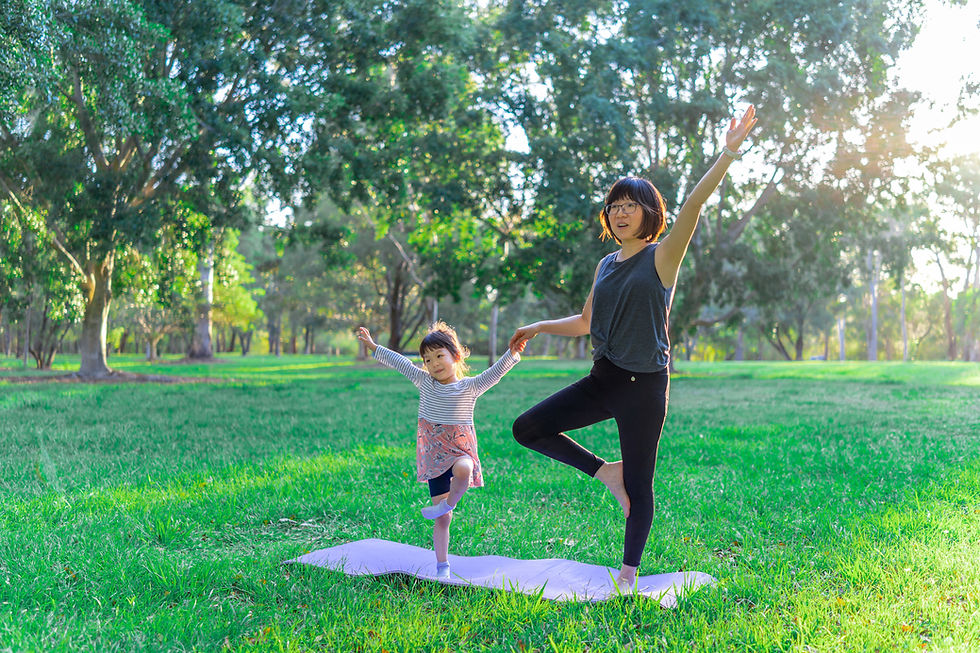5 Reasons Aching Joints Could Be Related to Menopause
- Melanie Wintle
- Nov 26, 2024
- 3 min read
Updated: Feb 13

Did you know that joint pain is a common symptom many women experience during menopause? If you’ve been noticing stiff, swollen, or painful joints, hormonal changes may be the culprit. Let’s dive into five main reasons menopause affects joint health and what you can do to feel better.
Estrogen Decline
Estrogen plays a vital role in maintaining cartilage health and reducing inflammation. During menopause, estrogen levels drop significantly, which can lead to joint stiffness, swelling, and pain. This hormonal shift may also make existing joint issues feel worse.
Increased Inflammation
With lower estrogen levels, your body may produce higher amounts of inflammatory markers. This heightened inflammation can lead to new joint discomfort or aggravate chronic pain conditions like arthritis, tendonitis and bursitis.
Tendon and Ligament Stiffness
A decrease in estrogen reduces the collagen content of connective tissues, increasing stiffness in ligaments and tendons and making them more prone to injury and slowing their ability to heal after strain or damage.
Sleep Disruption
Hot flushes and night sweats often disrupt sleep during menopause, leaving your body less time to repair tissues, manage inflammation effectively, and regulate hormones that support joint and muscle recovery.
Weight Gain
Many women experience weight gain during menopause, this can be attributed to lifestyle changes, increased hunger, added stress and decreased activity. This adds extra pressure on weight-bearing joints like knees and hips, exacerbating pain.
How to Support Your Joints During Menopause
Thankfully, there are steps you can take to alleviate joint pain and protect your overall health during menopause:
Stay Active: Regular exercise, including a combination of cardio and resistance training can maintain mobility, keep muscles around affected joints strong, strengthen tendons and ligaments and control joint swelling and pain.
Eat Anti-Inflammatory Foods: Add leafy greens, nuts, healthy fats and fiber rich foods to your diet.
Manage Stress: Stress can increase inflammation, so prioritize mindfulness, time in nature, meditation or even journaling.
Make Sleep a Priority: Establish a calming nighttime routine by avoiding heavy meals and limiting screen time before bed. Learn to recognize and avoid possible triggers for hot flushes and night sweats.
Prioritize Lifestyle Over Diet: Dieting is usually short-term and doesn't lead to long-term success. Instead, focus on making healthy eating and physical activity a part of your daily routine.
Educate and Learn More: Understanding the connection between menopause and joint health empowers you to take control of your well-being. Explore reliable resources, talk to healthcare professionals about your options, and stay informed about ways to manage symptoms effectively.
Take Away
Menopause can bring about many changes, and joint pain is one of the most common yet manageable symptoms. By staying proactive and making lifestyle adjustments, you can keep your joints healthy and active throughout this stage of life.
Need help with an effective exercise and lifestyle program to help you reduce joint pain, boost mobility, and feel your best during menopause? Get started today
Disclaimer:
This site offers health, fitness and nutritional information and is designed for educational purposes only. You should not rely on this information as a substitute for, nor does it replace, professional medical advice, diagnosis, or treatment. If you have any concerns or questions about your health, you should always consult with a physician or other health-care professional. Do not disregard, avoid or delay obtaining medical or health related advice from your health-care professional because of something you may have read on this site. The use of any information provided on this site is solely at your own risk.
.png)



Comments